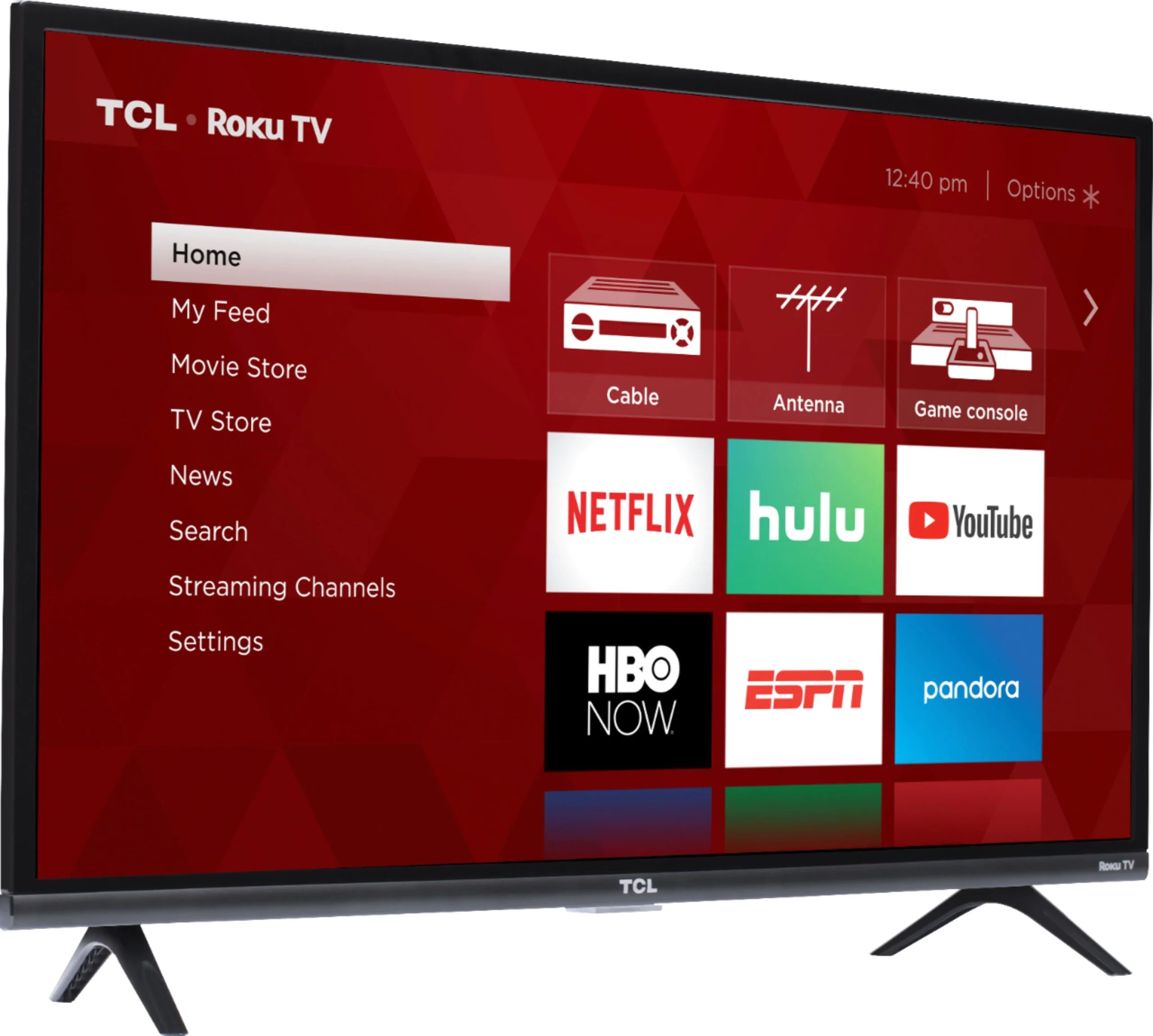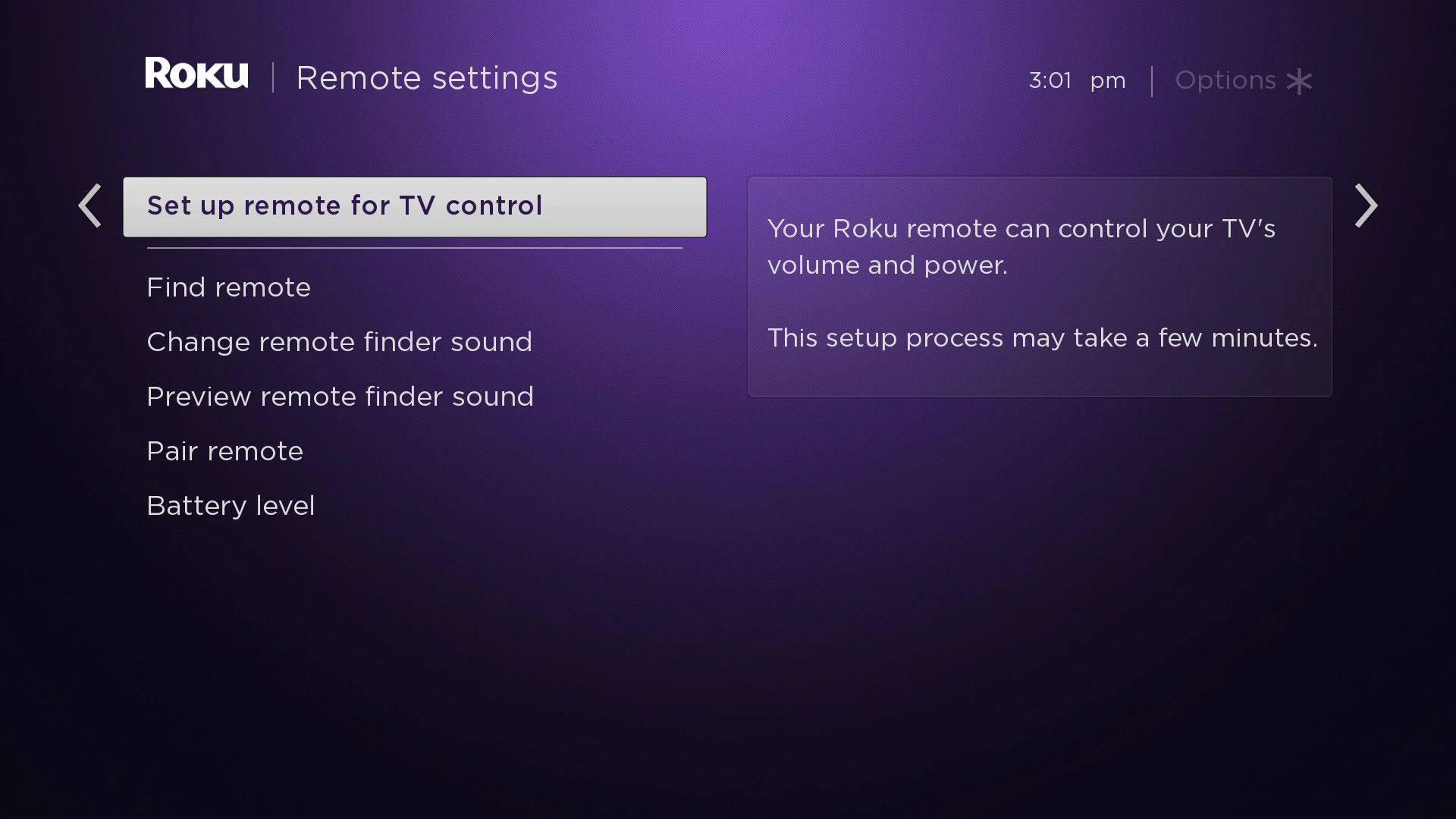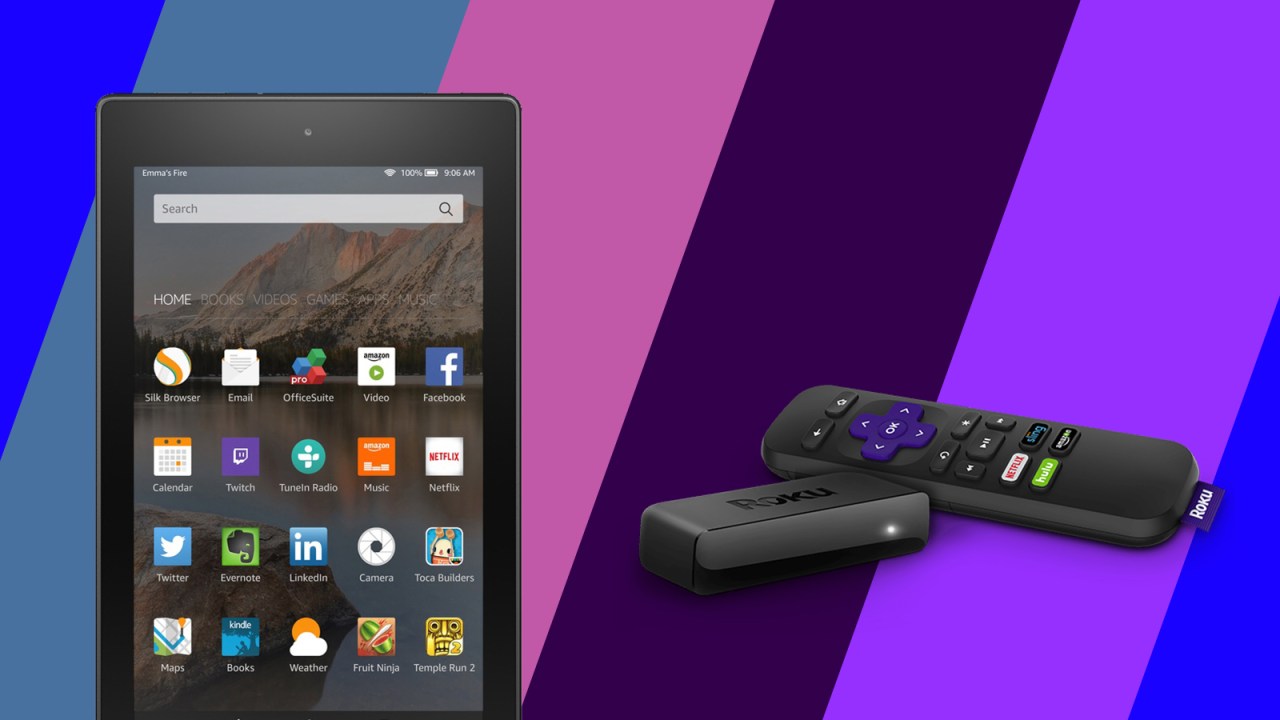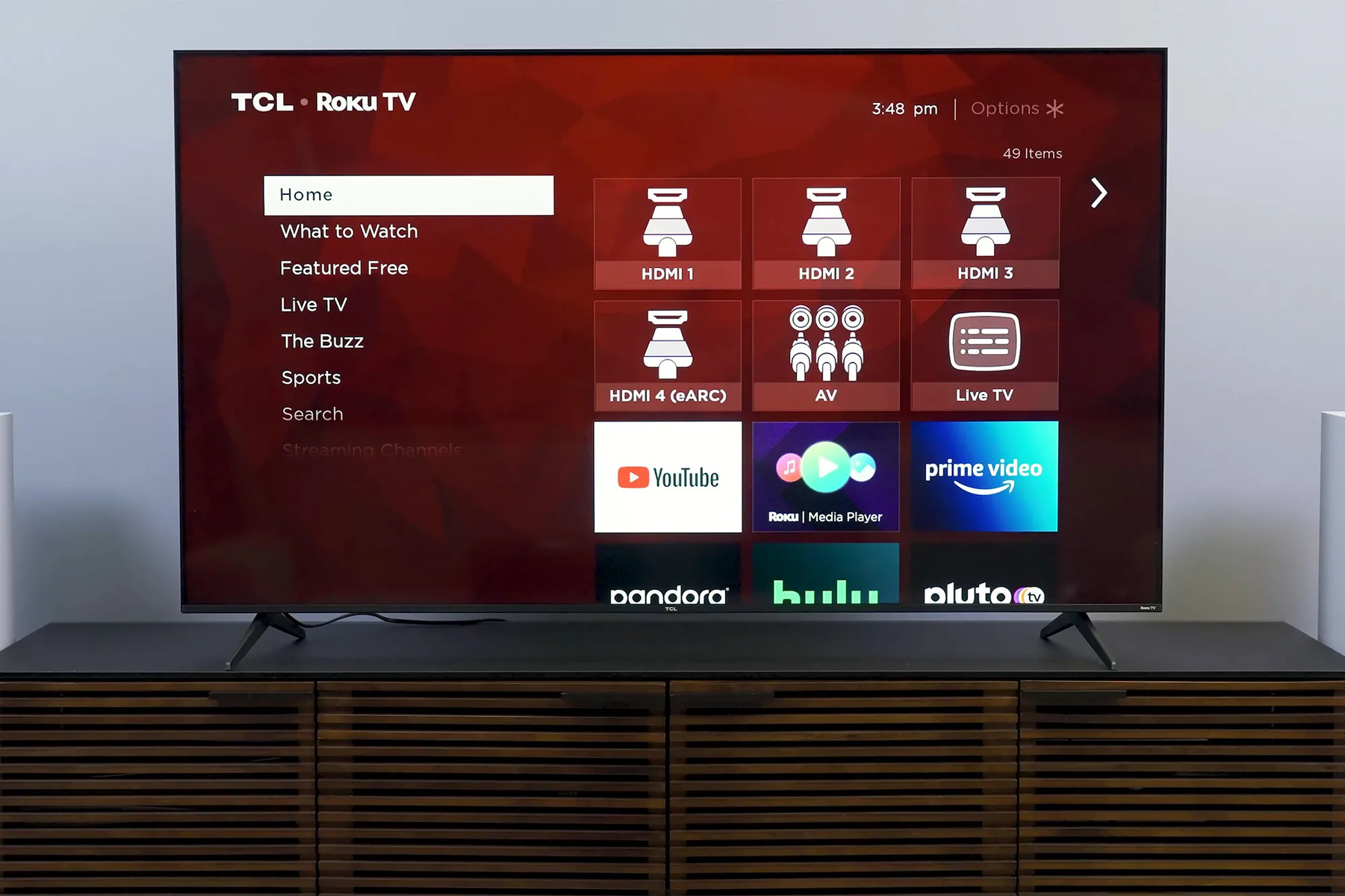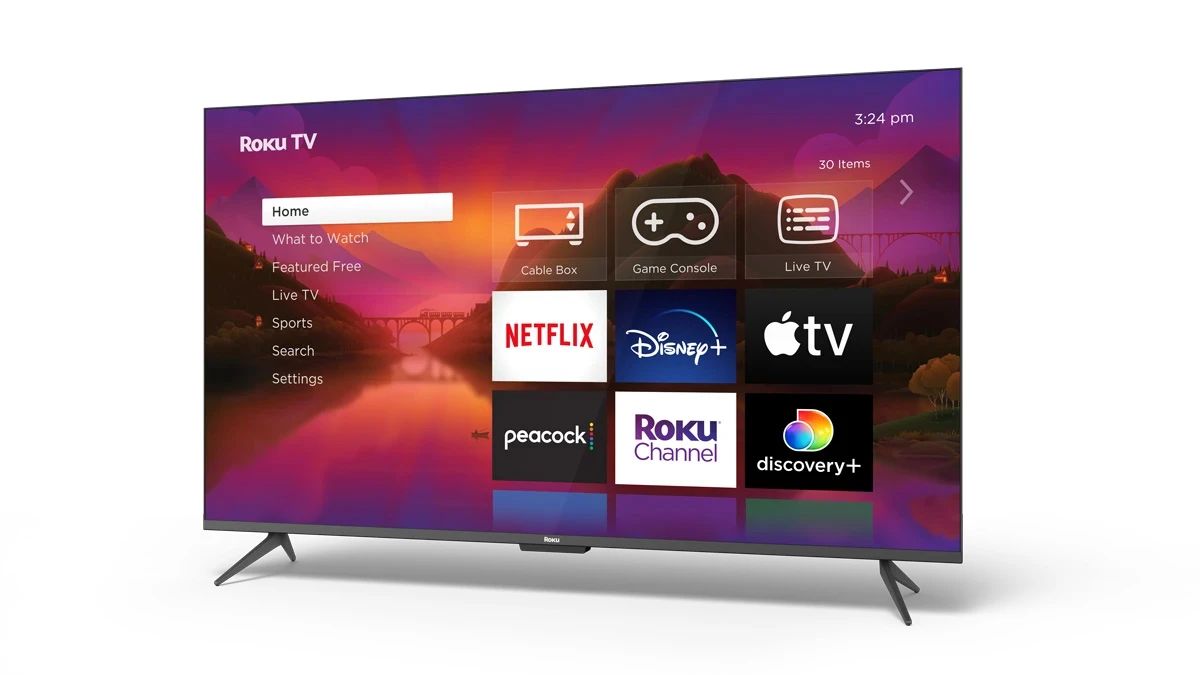Introduction
Roku TV has become a household name in the world of streaming devices, revolutionizing how we consume entertainment. From its humble beginnings to its current prominence, the ownership of Roku TV has undergone several changes and experiences. This article will delve into the history of Roku TV ownership, exploring the founders, early investors, and major shareholders, as well as the company’s relationship with content providers and its future outlook.
Founded in 2002 by Anthony Wood, Roku Inc. started as a hardware company, manufacturing devices that allowed users to stream content on their televisions. With its user-friendly interface and affordable price range, Roku quickly gained popularity among consumers, positioning itself as a leading player in the streaming industry. Wood, often referred to as the “Father of Roku,” played a crucial role in the company’s early success.
As Roku grew, it attracted the attention of investors who recognized its potential in the rapidly evolving streaming market. One notable early investor was Netflix, which saw the value in partnering with Roku to make streaming its content more accessible to a wider audience. This strategic collaboration proved to be a game-changer for both companies, paving the way for Roku’s future success.
In 2008, Roku released its first streaming device, the Roku Player, which received positive reviews and solidified the company’s position as a key player in the streaming market. With each new iteration, Roku refined its technology and expanded its product line to include various streaming devices and smart TVs.
In 2017, Roku made headlines when it went public, offering its shares on the stock market. The initial public offering (IPO) was a resounding success, raising over $250 million and further solidifying Roku’s position as a major player in the streaming industry. The IPO also introduced new shareholders to the mix, as investors flocked to the opportunity to own a piece of the rapidly growing company.
Today, Roku’s ownership is spread among various stakeholders. Anthony Wood, the founder, retains a significant stake in the company, ensuring his continued influence on Roku’s strategic decisions. Other major shareholders include institutional investors and venture capital firms that recognize the immense potential of the streaming industry.
Roku’s success lies in its ability to forge strong relationships with content providers. By partnering with leading streaming services such as Netflix, Hulu, and Amazon Prime Video, Roku ensures a diverse range of content is easily accessible to its users. This seamless integration of content and user-friendly interface has contributed to Roku’s expanding user base, solidifying its position as a top streaming platform.
Looking ahead, Roku is poised for continued growth and innovation. With the streaming industry showing no signs of slowing down, Roku’s position as a key player in the market is set to strengthen. As the company evolves, it will continue to shape the future of television and redefine how we consume entertainment in the digital age.
The Founders of Roku
Roku TV’s success story begins with its visionary founders who saw the potential of streaming devices long before they became mainstream. Anthony Wood, often referred to as the “Father of Roku,” played a pivotal role in the company’s inception and growth.
Wood, a seasoned entrepreneur and inventor, founded Roku Inc. in 2002 with the aim of creating a device that would seamlessly stream content on televisions. His previous experience in pioneering DVR technology and his passion for innovation led him to recognize the untapped potential of streaming devices.
Wood’s initial vision for Roku was to develop a hardware device that would allow users to access content from various online sources and stream it on their TVs. His goal was to make streaming simple and accessible for everyone, regardless of technical expertise.
Joined by a small team of engineers and software developers, Wood worked relentlessly to bring his vision to life. Their dedication and focus eventually led to the release of the very first Roku streaming device, the Roku Player, in 2008.
Wood’s expertise and entrepreneurial spirit were essential in Roku’s early success. His deep understanding of the streaming market, combined with his commitment to providing users with a seamless streaming experience, set the foundation for the company’s growth. Under his leadership, Roku TV became synonymous with high-quality streaming devices, attracting a large and loyal customer base.
Throughout Roku’s journey, Wood’s guidance and innovation have been instrumental in shaping the company’s direction. As the CEO of Roku, he has overseen the development and release of multiple generations of streaming devices, each one offering improved features and performance.
In addition to Anthony Wood, there were also other key individuals who played a significant role in Roku’s early days. Some notable figures include Jim Funk, who served as the company’s first Chief Marketing Officer, and Chas Smith, the Vice President of Hardware Engineering who played a crucial role in developing the hardware infrastructure of Roku’s streaming devices.
The collective efforts of these founders and their teams have propelled Roku to become a leading name in the streaming industry. Their commitment to innovation, simplicity, and user experience has garnered widespread recognition and set the stage for Roku’s continued success.
As Roku expands its global reach and introduces new features and technologies, the influence and guidance of its founders continue to shape the company’s path. With Anthony Wood at the helm, Roku TV remains dedicated to providing users with the best streaming experience possible and revolutionizing the way we consume entertainment.
Early Investors in Roku
As Roku TV gained traction and its potential in the streaming market became evident, the company garnered the attention of early investors who recognized the promising future of streaming devices. These investors played a crucial role in Roku’s growth and success.
One standout early investor in Roku was none other than Netflix, the dominant force in the streaming industry. Netflix recognized the value of partnering with Roku to expand its reach and make streaming its content more accessible to a wider audience.
In 2008, Netflix formed a strategic partnership with Roku, investing $6 million in the company. This investment not only infused Roku with crucial funding but also marked the beginning of a fruitful collaboration. As a result of this partnership, Roku became the first streaming device to offer access to Netflix’s extensive library of movies and TV shows.
The collaboration with Netflix served as a significant milestone for Roku, giving the company a competitive edge in the streaming market. The ability to offer one of the most popular streaming services at the time helped bolster Roku’s reputation and attract additional investors.
Over the years, Roku attracted support from other notable investors as well. Menlo Ventures, a venture capital firm, played a significant role in Roku’s early funding rounds. Their investment, along with contributions from other venture capital firms, injected the necessary capital into Roku, allowing the company to expand its product line and further establish its brand.
Another key investor in Roku was Globespan Capital Partners, which participated in multiple funding rounds over the years. Globespan recognized the potential of Roku TV and its ability to disrupt traditional cable and satellite television services.
Wood Investments and Anthony Wood, the founder of Roku, were also important investors in the early stages of the company. Anthony Wood’s deep conviction in the future of streaming devices led him to invest his own resources into Roku, demonstrating his belief in the company’s potential.
With the support and backing of these early investors, Roku gained the financial stability and resources required to scale its operations and bring new and improved streaming devices to the market. Their investments not only provided Roku with the necessary capital but also signified the confidence and belief in the company’s vision and ability to capture the streaming market.
Looking back, the early investors in Roku played a critical role in the company’s success. Their financial support, strategic partnerships, and industry expertise catapulted Roku into the forefront of the streaming industry, paving the way for its continued growth and market dominance.
The Public Offering
In 2017, Roku made a significant move that solidified its position in the streaming industry by going public. The initial public offering (IPO) was a major milestone for the company, marking its transition from a privately-held entity to a publicly-traded company.
Roku’s IPO was met with immense investor enthusiasm and generated substantial buzz in the financial and tech sectors. The company offered 15.7 million shares of its Class A common stock, raising over $250 million in the process.
The success of Roku’s IPO can be attributed to several factors. First and foremost was the growing demand for streaming devices and the overall positive outlook on the streaming industry. With consumers increasingly adopting cord-cutting behavior, the market for streaming services and devices was experiencing rapid growth.
Furthermore, Roku’s strong performance in the market and its reputation as a reliable and user-friendly streaming platform made it an attractive investment opportunity. The company had already established partnerships with major content providers, such as Netflix, Hulu, and Amazon Prime Video, solidifying its position in the streaming market.
Investors saw Roku as a unique opportunity to gain exposure to the growing streaming industry. The company’s strong brand recognition, expanding user base, and innovative product line were compelling selling points for potential investors.
The positive response to Roku’s IPO was evident from the surge in its stock price. On the first day of trading, Roku’s shares skyrocketed by over 67%, highlighting the market’s confidence in the company’s future prospects.
The success of the IPO also resulted in the entrance of new shareholders into Roku’s ownership. Institutional investors and venture capital firms were among those who purchased shares. This infusion of new ownership further strengthened the company’s financial position and provided additional resources for future growth and expansion.
Roku’s IPO represented a turning point for the company, allowing it to accelerate its growth trajectory and pursue new opportunities. The substantial capital raised through the offering enabled Roku to invest in research and development, expand its product line, and explore potential acquisitions.
As a publicly-traded company, Roku is subject to increased scrutiny and accountability to its shareholders. The IPO has not only provided investors with an opportunity to be part of the streaming revolution but has also presented Roku with a platform to showcase its ongoing success and deliver value to its shareholders.
Looking forward, the successful IPO sets the stage for Roku’s continued growth and market dominance. With increased financial resources, the company is well-positioned to capitalize on the rising demand for streaming devices and services and innovate in the rapidly evolving streaming industry.
Major Shareholders of Roku
As a publicly-traded company, Roku has a diverse group of major shareholders who hold significant stakes in the company. These shareholders play a crucial role in shaping Roku’s strategic direction and have a vested interest in its success.
One of the largest shareholders of Roku is Anthony Wood, the founder and CEO of the company. Wood retains a significant stake in Roku, solidifying his influence and commitment to the company’s long-term vision. His deep understanding of the streaming industry and passion for innovation continue to guide Roku’s growth and development.
Institutional investors also hold substantial shares of Roku, bringing capital, talent, and industry expertise to the company. These investors include leading investment firms and asset management companies such as BlackRock, Vanguard Group, and T. Rowe Price. Their involvement reflects the recognition of Roku’s potential and the confidence in its ability to drive value for shareholders.
Venture capital firms have also played a pivotal role in Roku’s growth journey and remain important shareholders. Menlo Ventures, a prominent venture capital firm, has made significant investments in Roku over the years. Their continued support demonstrates their belief in Roku’s vision and potential to revolutionize the streaming industry.
Moreover, strategic partners and content providers who have collaborated with Roku have a vested interest in the company’s success. Netflix, an early investor and a strategic partner, holds a stake in Roku. The partnership between Roku and Netflix has been mutually beneficial, cementing their commitment to expanding the streaming landscape.
Additionally, individual investors who have purchased Roku’s shares on the stock market contribute to the diverse ownership structure of the company. These retail investors allow for widespread participation, aligning with Roku’s philosophy of making entertainment accessible to all.
The mix of major shareholders in Roku brings a blend of industry expertise, financial strength, and strategic guidance to the company. Together, they support Roku’s ambitious growth plans and contribute to its ongoing success in the fiercely competitive streaming market.
Roku’s major shareholders not only have a financial stake in the company but also have a vested interest in its strategic direction. Their collective influence helps shape Roku’s decisions, ensuring the company remains at the forefront of innovation and delivers value to its shareholders and customers alike.
As Roku continues to expand its market reach and introduce new innovations, the role of its major shareholders becomes increasingly significant. Their support and dedication provide the necessary resources and guidance for Roku’s continued growth and success in the streaming industry.
Roku’s Relationship with Content Providers
Roku has established strong relationships with content providers, which have been instrumental in the company’s success as a leading streaming platform. These partnerships ensure a vast and diverse range of content is readily available to Roku users, enhancing their streaming experience.
One key content provider that has a significant partnership with Roku is Netflix. Roku was one of the first streaming devices to offer access to Netflix’s extensive library, providing users with a seamless way to stream their favorite movies and TV shows. This collaboration has been mutually beneficial, as it increased the popularity of both Roku and Netflix and solidified their positions in the streaming industry.
Roku has also formed strategic alliances with other major content providers, including Hulu, Amazon Prime Video, and Disney+. By offering these popular streaming services on their platform, Roku ensures that users have access to a wide array of high-quality content from various sources. These partnerships expand Roku’s content library and make it an attractive option for consumers seeking a one-stop streaming solution.
In addition to major streaming services, Roku has also forged partnerships with niche content providers, catering to specific interests and genres. Channels such as HBO, Showtime, and ESPN offer premium content to Roku users, providing them with a comprehensive streaming experience. These collaborations allow Roku to cater to the diverse needs and preferences of its user base.
Roku’s commitment to providing an open platform has also enabled smaller content providers and independent creators to reach a wider audience. Through its Roku Channel Store, the company offers a vast selection of channels that cover a wide range of topics and genres, giving users access to unique and niche content that may not be available on mainstream platforms.
Roku’s partnerships with content providers extend beyond simply providing access to their libraries. The company also collaborates with these providers to optimize the streaming experience, ensuring smooth playback, high-quality video, and seamless integration with Roku’s user interface. This commitment to user experience has contributed to Roku’s reputation as a reliable and user-friendly streaming platform.
Roku’s relationship with content providers is dynamic and evolving. As the streaming industry continues to grow and new players emerge, Roku actively seeks opportunities to establish partnerships with up-and-coming content providers. By keeping its content library diverse and up-to-date, Roku ensures that users have access to the latest and most relevant programming.
Overall, Roku’s strong relationships with content providers have been instrumental in its success. These partnerships enable Roku to offer a diverse selection of high-quality content to its users, driving user engagement and cementing its position as a preferred streaming platform. As Roku continues to expand and innovate, its ongoing collaborations with content providers will remain a key component of its business strategy.
Future of Roku Ownership
The future of Roku ownership presents an exciting outlook as the company continues to solidify its position in the streaming industry. With the increasing demand for streaming services and devices, Roku is well-positioned to capitalize on emerging opportunities and drive further growth.
As Roku expands its user base and introduces innovative features, the ownership landscape is likely to evolve. While the founders and early investors have been key stakeholders in Roku’s success, the entrance of new shareholders through the company’s IPO has diversified the ownership structure.
Institutional investors, including venture capital firms and asset management companies, hold significant stakes in Roku. Their involvement brings capital, expertise, and strategic guidance to the company. As Roku continues to innovate and expand, these shareholders will play a crucial role in supporting its growth and ensuring its continued success.
Roku’s major content partners, such as Netflix and Hulu, also hold a stake in the company. These partnerships go beyond offering content on the Roku platform; they reflect a shared vision for the future of streaming and a mutual interest in driving its continued adoption. As content providers continue to reshape the industry, their ownership involvement in Roku will contribute to the company’s direction and growth.
Looking ahead, it is possible that new strategic alliances and partnerships will emerge, driven by evolving market dynamics. Roku may seek collaborations with emerging content providers, technology companies, or even media conglomerates to strengthen its position and expand its content offerings.
Roku’s commitment to openness and its thriving developer community may also influence its future ownership. The platform allows developers to create and distribute their own streaming channels, fostering a vibrant ecosystem of innovative content creators. As Roku’s user base continues to grow and more developers join the platform, the ownership landscape could see an influx of channel owners and independent creators who contribute to its success.
Furthermore, the future of Roku ownership may witness potential acquisitions. As the streaming industry evolves, consolidation and strategic acquisitions become prevalent. Roku may strategically acquire companies or technologies that complement its existing offerings, further strengthening its market position and expanding its capabilities.
Ultimately, the future of Roku ownership depends on the company’s ability to adapt and innovate in an ever-changing streaming landscape. The ownership structure will likely continue to evolve as Roku leverages new opportunities and partnerships. Regardless of changes in ownership, Roku’s dedication to providing a seamless streaming experience and delivering value to its users will remain at the core of its mission.









